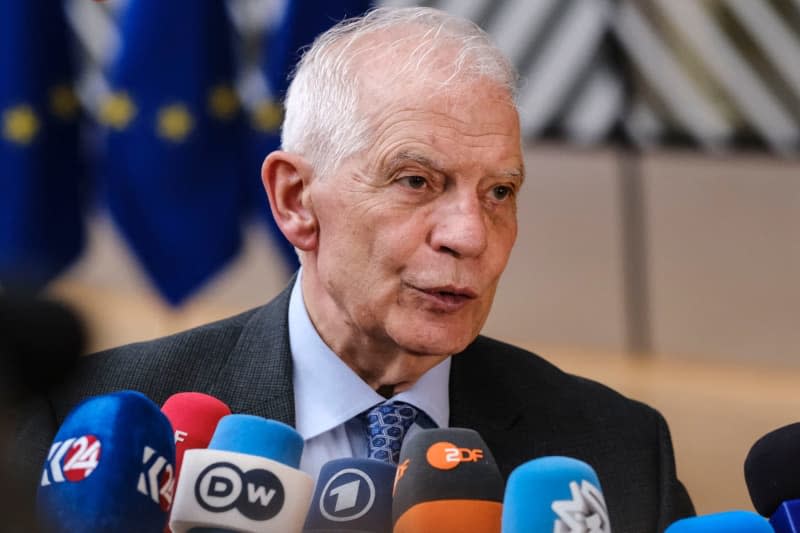EU mission has repelled 11 Red Sea attacks, foreign policy chief says

- Oops!Something went wrong.Please try again later.
A joint European Union naval mission has repelled 11 attacks by Yemen's Houthi militants in the Red Sea, the bloc's foreign affairs chief said on Monday.
"In less than two months since the operation was launched, the operation has escorted 68 vessels and has repelled 11 attacks," Josep Borrell told reporters in Brussels.
The operation was approved by EU member states' foreign ministers on February 19. Naval vessels participating in the mission are providing armed escorts to commercial ships navigating the Red Sea.
Iran-aligned Houthi forces in Yemen have been attacking maritime traffic in what they say is a response to Israeli military action in Gaza.
The operation commander, Rear Admiral Vasileios Gryparis, said at the same press conference: "Our ships have shot down nine unmanned aerial vehicles, one unmanned surface vessel, and four anti-ship ballistic missiles."
Gryparis cautioned against drawing premature conclusions about the mission's achievements. Nevertheless, "this is the way ahead," he said. "We have shown, at least with the number of assets that we have, what we can do."
He stressed that the area covered by the mission is larger than the entire European Union. "The area of operation encompasses the Red Sea, the Gulf of Aden, the Arabian Sea, the Sea of Oman, the Gulf, and also the north-west part of the Indian Ocean."
Borrell said that because of the Houthi attacks, commercial shipping between Europe and Asia has been forced to take a longer route around South Africa's Cape of Good Hope.
"This is 10 to 14 days more of travelling. The cost of a container transported from China to Europe has doubled," he said.
"Before the crisis, 13% of world trade transited through the Red Sea ... Today, only half of the 70 ships that were passing daily still use the Suez Canal. So it was necessary to intervene."

